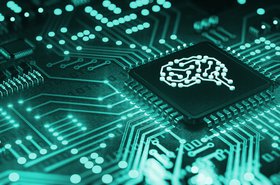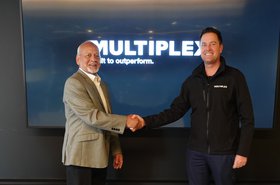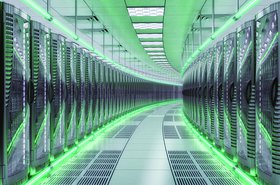The data center industry, a cornerstone of the digital age, has long grappled with the challenges of ensuring uptime and resilience. Central to this challenge has been the reliance on diesel backup generators, a tried-and-true solution that has kept servers humming during power outages.
However, as the world pivots towards sustainability, the environmental and economic implications of diesel generators are coming under scrutiny. Is it time for the industry to rethink its backup power solutions?
The case against diesel
Diesel generators have been the go-to solution for backup power for decades. Their reliability in emergencies is well-documented. However, the environmental cost is becoming increasingly hard to ignore:
Carbon footprint: Diesel combustion releases significant amounts of carbon dioxide, a major greenhouse gas. With the global push towards reducing carbon emissions, the data center industry's reliance on diesel is at odds with global sustainability goals.
Local pollution: Beyond carbon emissions, diesel generators release pollutants that contribute to smog and respiratory illnesses. In densely populated areas, this can have significant public health implications.
Supply chain vulnerabilities: The global supply chain for diesel, tied to geopolitical factors, can be unpredictable. Price volatility and supply disruptions can impact the operational costs of data centers.
Recent developments, such as Maryland's decision to deny an exemption for installing 168 diesel generators at the Quantum Loophole campus in Frederick County, underscore the growing regulatory and environmental challenges associated with diesel.
The state's concerns about the environmental impact of what they equated to a 500MW diesel power plant are, rightly or wrongly, a clear indication of the direction in which the statutory winds are blowing.
The path forward: Alternatives to diesel
The good news is that the industry is not short of alternatives. Innovations in power backup solutions offer both environmental benefits and operational efficiencies:
HVO100: A renewable diesel derived from vegetable oils and fats, HVO100 burns cleaner than traditional diesel, reducing emissions. While its use in data centers is still emerging, there's a growing trend towards adopting HVO100 as a sustainable backup fuel alternative.
Hydrogen fuel cells: Microsoft’s exploration of hydrogen fuel cells as a potential replacement for diesel generators is a testament to the viability of this solution. Hydrogen fuel cells produce electricity through a chemical reaction between hydrogen and oxygen, with water as the only byproduct. They offer the potential for zero-emission backup power.
Microgrids: Microgrids, localized energy systems that can operate independently of the main grid, offer a promising solution. They can harness renewable energy sources, such as solar or wind, reducing the carbon footprint. Moreover, their ability to operate autonomously ensures uninterrupted power supply during grid failures.
Battery storage: Advances in battery technology, especially lithium-ion batteries, offer another avenue. These batteries can store energy from renewable sources and deliver it during power outages. Their decreasing costs and increasing efficiencies make them a viable backup solution.
Natural gas: While not entirely carbon-neutral, natural gas generators emit significantly less carbon dioxide than diesel and can serve as a transitional solution. This however is a judgement call, and it may well be that natural gas is also ruled out before too long. We have recently seen the Victorian Government here in Australia phase out natural gas in all new home developments.
GreenSquareDC’s decision
At GreenSquareDC, we made the decision early to move away from diesel fossil fuels for WAi1. Whilst not without its challenges, here are some of the steps that have led to the transition:
Robust power supply: At WAi1, the installation of dual transmission level feeders directly connected to generation ensures a super highly resilient power source.
Flexible alternatives: HVO100 can be supplied in the interim and Perth has multiple green hydrogen suppliers for fuel cells in later stages.
Microgrid capabilities: Our microgrid and renewable strategy at WAi1 offers seamless power transitions and advanced functionalities, further diminishing the need for diesel generators.
Sustainability focus: GreenSquareDC's commitment to green practices and close alignment to our key customer objectives, naturally steers us away from diesel.
Industry collaborations: Partnerships with global leaders like Schneider Electric, HPE, Multiplex and Fuel Cell Energy equip us with innovative solutions, supporting the transition from diesel fuels.
Conclusion
The data center industry stands at a crossroads. The traditional reliance on diesel backup generators is increasingly at odds with the global push towards sustainability. While the challenges are real, so are the opportunities.
By embracing alternative backup solutions, the industry can ensure resilience and reliability without compromising on its environmental responsibilities. The question is not whether the industry can afford to move away from diesel – it's whether it can afford not to.
To learn more about GreenSquare DC and its upcoming initiatives, you can read the following white paper titled, ‘Elevating Perth: The future global epicenter for AI digital infrastructure' here.
More from GreenSquareDC
-

Sponsored GreenSquareDC: The future of AI-ready, ethical and sustainable data centers
Introducing the AI-ready data center helping customers achieve their decarbonization and wider ESG goals
-

Sponsored GreenSquareDC and Multiplex partner on Australia’s first fully AI enabled data center
Multiplex enters agreement as preferred contractor for GreensquareDC's revolutionary $1bn 96MW WAi1 net-zero data center project in Perth
-

GreenSquareDC granted planning permission for 96MW data center in Perth, Australia
New company gets OK for first facility


